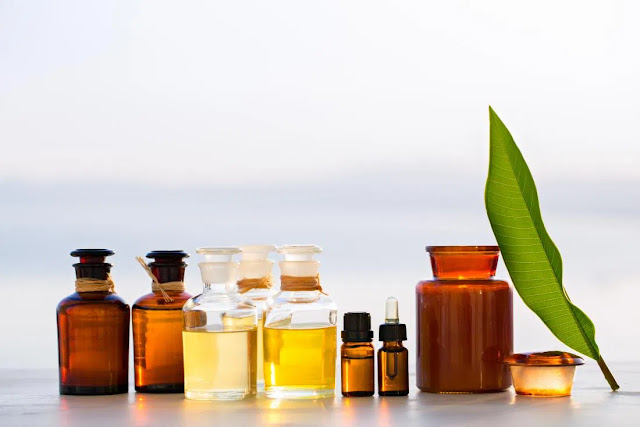There are thousands of products in the market that use essential oils as ingredients and you are missing out on all the ads! I know right?! Products which use Essential oils are good due to their ingredients and contents.
Natural essential oils, organic essential oils, pure essential oils, and much more. I'm sure you've heard of
these terms as you look to buy essential oils. So, what is the difference, and
does it really make a difference? Let's take a look!
Pure Essential Oils
The term is widely used by many
essential oil India companies to indicate that their oil is "pure" and some
even say that the essential oils have no chemicals.
To this day, this is an unregulated
industry, and "pure essential oils" does not mean that essential oils
are not cared for and chemically treated as many companies have claimed.
Let's understand a little bit about
how essential oils are obtained before we get into the debate over whether
essential oils are "pure" or "safe".
Essential oils are compounds extracted
from plants. They are extracted by steam and/or by water distillation or
other methods such as cold pressing. After the release of fragrant chemicals,
they are usually mixed with a carrier oil to create a ready-to-use product. Why?
This is because the released compounds are highly concentrated and have the
potential to cause serious side effects when used directly.
Many people have the misconception that "pure" or "natural" means that it is safe or good, however, plants contain many organic substances that can be harmful to your health in some cases. However, most essential oils are considered safe when inhaled or combined with carrier oils for skin use. However, they can still cause the same side effects; rash, headache, allergies, nausea.
Applying essential oil directly on the skin is not recommended, as it can be dangerous and in some doses can be fatal.
Organic
Essential Oils / Natural Essential Oils
Simply put, these words usually mean
no chemicals and pesticides. However, as mentioned above, this is an
unregulated industry and companies can put this on their labels even if it is
not true. A quick and easy way to get that by looking at the price. You see the
essential oils sold for just a few dollars (some up to $ 1) and they say they
are natural. Simple calculations and you know it's impossible. Let’s put it
this way so you can better understand it; it takes about 75 lemons to extract
15ml of essential oil.
Essential oils India are generally
considered to be safe to smell or absorb into the skin (including carrier oil),
however, they should not be ingested.
I would say that, for minor health
problems such as the flu, sinus, cough, using essential oils as a complementary
therapy is probably okay. However, if you have a serious health condition and
are taking medication, it is best to consult your doctor.
To sum
Things
There are two aspects to ultimately
reaping great benefits from essential oils. One is about the real understanding
of the differences between natural and artificial essential oils. Second, all
essential oil users must educate themselves about both their health benefits
and their proper functioning.



Comments
Post a Comment